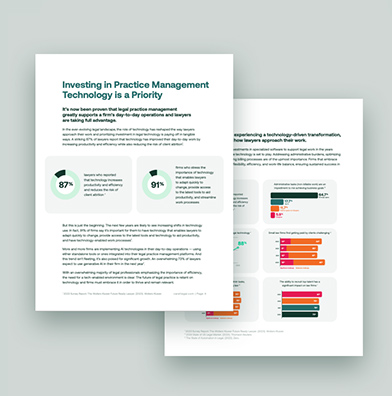Lawyers looking to make the most of downtime often have a long to-do list, from marketing their firm to developing relationships with existing clients. Today, we want to make the case for spending some of this time focused on professional development.
Embracing the Benefits of Lifelong Learning
Of course, lawyers are no strangers to lifelong learning. Laws and regulations are constantly in flux, and every lawyer needs to invest time to stay current in their practice. But beyond your practice specialty, there are opportunities for learning and developing that can benefit you and your firm.
Simply put, by prioritizing professional development and adopting a proactive approach to learning and growth, lawyers can position themselves for long-term success in their legal careers.
Required Professional Development
Yes, lawyers are typically required to undergo training as part of their professional development and to maintain their licenses. The mandatory training varies by jurisdiction and state statutes. For instance, the California Attorneys Association emphasizes attorneys licensed in California must complete 25 hours of Minimum Continuing Legal Education (MCLE) every three years. These must include ethics and competence issues, such as substance abuse, mental health, and communication. Several states have similar requirements.
Yearly Roundup: Strategic Insights for Law Firm Decision-Making
Check out this compilation of important findings from various legal industry reports to provide a concise recap of notable trends, challenges, and opportunities that have recently emerged in the legal landscape.

To add, 40 state bar associations have also adopted a Duty of Technical Competence, which requires that attorneys be proficient in using technology, the business of law, health and wellness, and interpersonal skills. In short, it says “Reasonable efforts should include careful consideration of the use of technology and office resources connected to the internet, external data sources, and external vendors providing services relating to client data, and the use of client data.” Examples of how lawyers can proactively seek out opportunities to learn about and use new technology in their practices follow below.
Professional Development Tips for Lawyers
If you are a practicing lawyer experiencing a drop in billable hours right now, consider taking advantage of the following professional development opportunities that allow you to grow your skills.
- Newly digital conferences
As a result of the pandemic, many conferences and meetups have been transformed into virtual events, which may make it easier to attend law conferences like those hosted by the American Bar Association or on Meetup. As an added benefit to these events, many allow you to connect virtually with other law professionals and grow your network. - Continuing legal education (CLE)
Educational centers like West LegalEdcenter, Attorney Credits, and Practising Law Institute offer qualified CLEs that count toward your state licensing requirements. - Massive Open Online Courses (MOOCs)
With an investment of only time and Internet access, you can access hundreds of free, top-tier courses through MOOCs like Coursera, edX, Udemy, LinkedIn Learning, and more. Low-cost paid programs are also available, and you can often take the same courses offered at Ivy-league colleges like Brown, Columbia, and Cornell. - Executive Coaching
Lawyers often focus on growing the firm more than growing themselves, but that can limit your growth and the growth of your firm in the long run. Partnering with an independent executive coach or an American Bar Association coach can help you develop yourself as a leader and grow your business’s potential. - Specialization
Consider specializing in a particular area of law to deepen your expertise. Specialization can make you more marketable and allow you to command higher rates. - Networking
Build and maintain a strong professional network within and outside the legal profession. Attend legal events, join bar associations, and participate in networking groups relevant to your practice area. - Mentorship
Seek out mentors who can provide guidance and support as you navigate your legal career. Experienced mentors can offer valuable insights and help you avoid common pitfalls. - Writing and Speaking
Publish articles, blog posts, or legal guides to showcase your expertise and establish yourself as a thought leader in your field. Additionally, consider speaking at conferences, seminars, or participating in webinars to further enhance your visibility and credibility. - Technology Skills
Stay abreast of technological advancements relevant to the legal profession. Familiarize yourself with legal research databases, e-discovery tools, practice management software, and other technology platforms that can improve your efficiency and effectiveness as a lawyer.
Embracing Lifelong Learning
As Aristotle once said, “Learning is an ornament in prosperity, a refuge in adversity, and a provision in old age.”
As you navigate your long career as a lawyer, there will be both slow and busy periods. Knowing a busy period may be right around the corner, consider how you can use this time to advance your skills, knowledge, and service to your current and prospective clients.
Written by CARET Legal partner, Lynmarie Lane. Lynmarie is a legal marketing professional with more than 20 years of experience. She currently works with the team at Source Consulting Group and has her own consultancy, L Squared Marketing Group.
